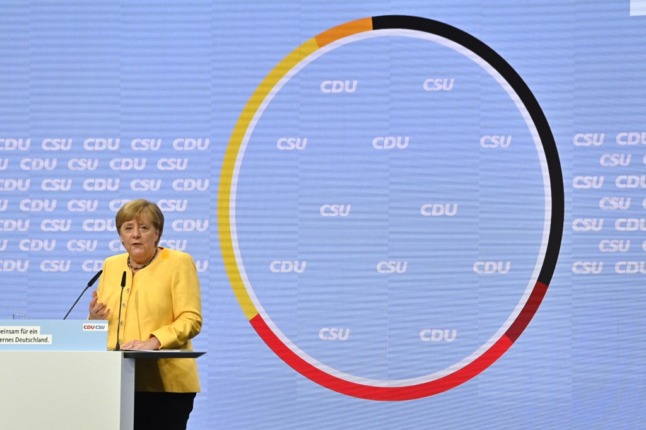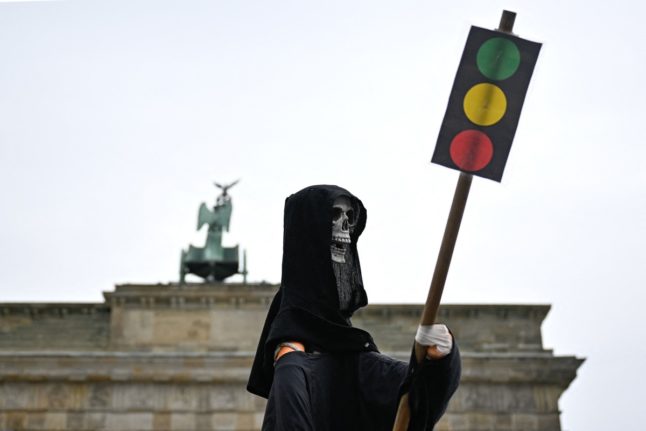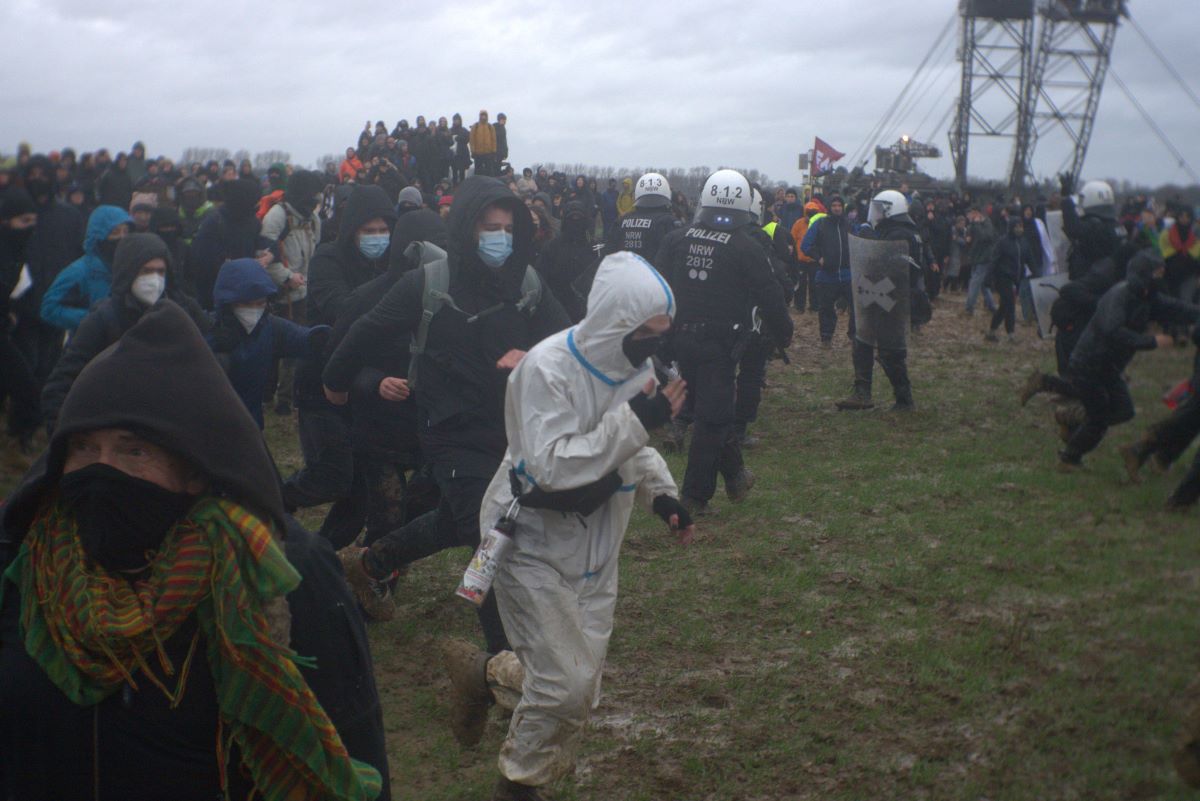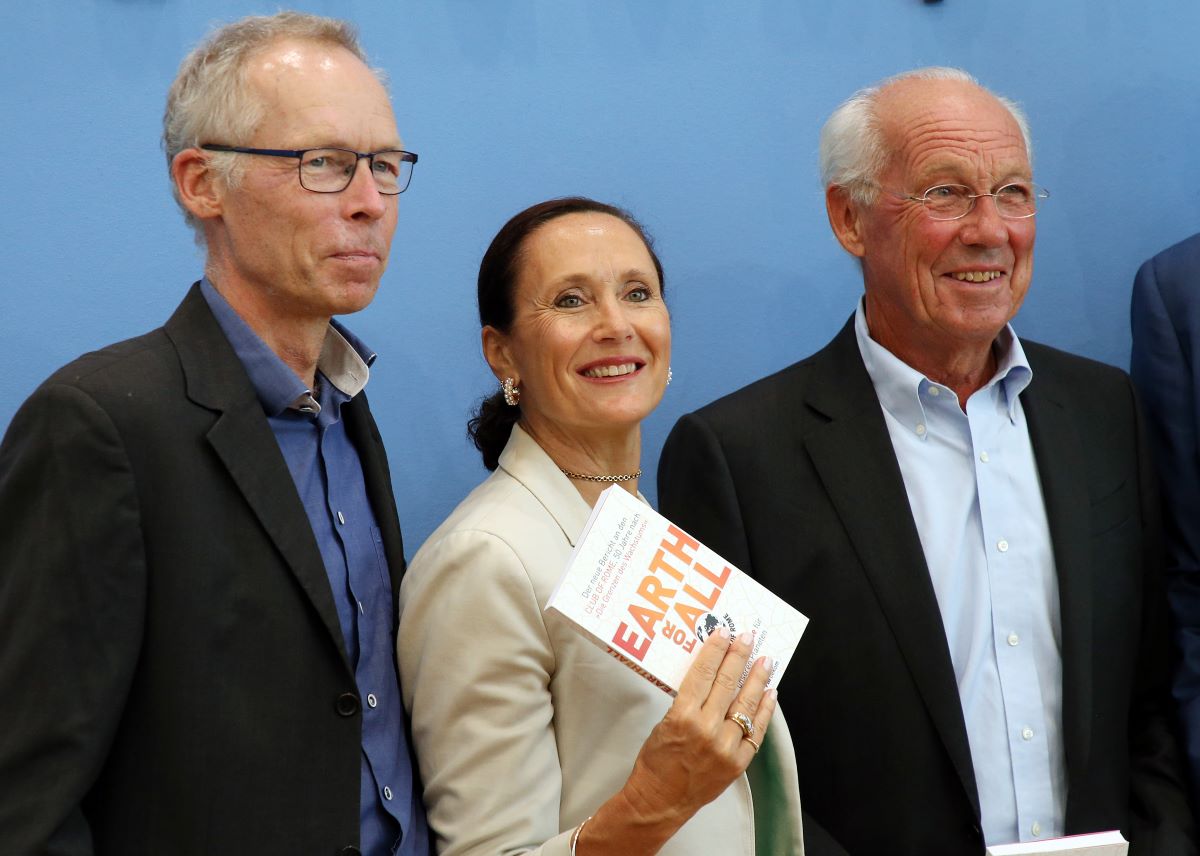Merkel’s conservative CDU-CSU alliance has led Germany in four coalitions since 2005 when she took office, but the country’s future new government has been thrown open as her departure from the political stage nears.
The 67-year-old veteran will step down after the September 26th elections and had so far refrained from commenting about who she preferred to take over from her.
But on Saturday, at a key election campaign rally, she voiced strong backing for Laschet.
“It has always been important to him to place the individual and their inviolable dignity at the centre of everything… I am deeply convinced that it is precisely with this attitude that (he) will serve the people of Germany as chancellor,” she said at the rally.
While Merkel’s popularity ratings have held steady in the twilight of her reign, Laschet has struggled to find favour with voters.
The latest polls show their conservative bloc now hanging on to a narrow lead of two percentage points against junior coalition partners the Social Democrats, who have in recent weeks made big strides to overtake erstwhile runners-up the Greens.
A survey published on Friday showed just as many Germans want the Social Democrats to lead the next government as the conservatives — an alarmingly big drop of five percentage points in backing for the CDU-CSU from early August.
The SPD’s chancellor candidate Olaf Scholz was also more popular with voters — some 41 percent of Germans prefer the centre-left politician as next chancellor as compared to just 16 percent plumping for Laschet.
‘Quick and painful’
While frustration against the government over the coronavirus pandemic had initially weighed on the conservatives’ popularity earlier in the year, the mood had brightened as more Germans were vaccinated and curbs were eased.
An initial boost in support for the Greens had also melted away as its leader was embroiled in a plagiarism scandal and other gaffes, giving the conservatives a strong lead in polls entering the summer.
But the mood dramatically turned in July when Laschet was seen chuckling in the background with local officials while Germany’s president gave a speech mourning victims of deadly floods.
READ ALSO: POLITICS: Frontrunner to succeed Merkel as chancellor on back foot after flood disaster
Since the disaster, the conservatives have been unable to halt a falling trend in popularity.
The Taliban’s lightning takeover of Afghanistan also puts more pressure on Merkel’s government, which is under fire for failing to anticipate the crisis sooner.
At Saturday’s rally, Laschet acknowledged that the campaign was “going differently that the various strategies” drawn up by his party. But he blamed the pandemic and then the floods for derailing the plans, and did not address his failing popularity.
Criticism from several backbenchers had spilled out into the open on Friday, with the Bild daily even quoting MPs apparently urging Laschet to step aside for the sake of the party.
“A quick and painful reaction is better than to go down together,” CDU lawmaker Sylvia Pantel was quoted as saying by Bild.
The jitters in the conservative camp also risk reviving strife that had dogged the alliance of CDU and its sister party CSU even before the start of their election campaign.
‘Great danger’
Laschet only secured the conservatives’ chancellor candidate nomination in April after a bruising battle with the leader of Bavaria’s CSU, Markus Soeder.
Despite conceding after the loss, a whiff of discontent has lingered in the air from Soeder’s camp as the Bavarian has been consistently ahead in popularity polls against Laschet.
In a new jibe from Soeder’s camp on Friday, CSU general secretary Markus Blume said there was “great potential for improvement” in the conservatives’ poll ratings, and that, is “especially, by the way, when measured against the tremendous popularity that Markus Soeder continues to enjoy”.
READ ALSO: Merkel’s conservatives confirm Laschet for chancillor as Soeder concedes
Soeder put up a united front with Laschet at the rally, telling him “Armin, you can rely on my support — this I mean in all honesty.”
But Soeder, who is also Bavaria’s state premier, also underlined that it was the conservatives’ toughest campaign since 1998, when the alliance was voted out of government.
“The trend is clear at the moment — it’s not heading steeply upwards,” he said, adding that “all’s not lost yet.”
“There’s no reason to complain, rather, it is time to really put up a fight. I have no desire to go into opposition.”





 Please whitelist us to continue reading.
Please whitelist us to continue reading.
Member comments